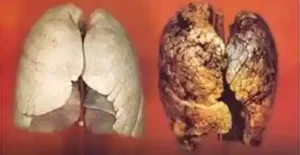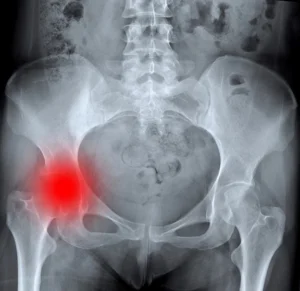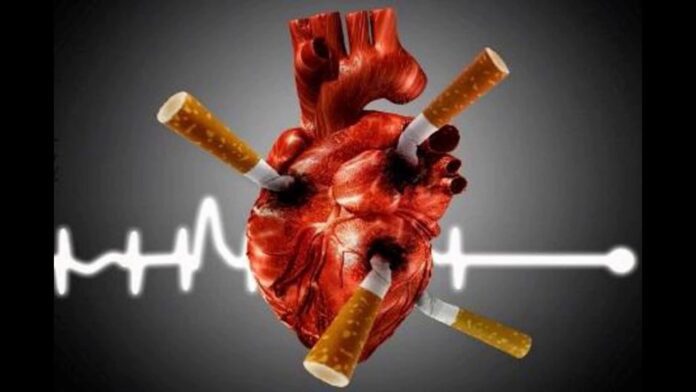Cigarette smoking affects practically every organ of the body, causes many illnesses, and decreases smokers’ overall health. Quitting smoking reduces your risk of smoking-related illnesses and can extend your life.
Cigarette smoking is the biggest avoidable cause of death in the United States. It kills around 480,000 people in the United States each year. This is approximately one in every five fatalities. Every year, smoking kills more people than the following causes combined:
The human immunodeficiency virus (HIV)
Use of illegal drugs
Using alcohol
Injuries from motor vehicles
Incidents using firearms
More Americans have died prematurely as a result of cigarette smoking than have perished in all of the United States’ conflicts combined.
Smoking is responsible for around 90% (or 9 out of 10) of all lung cancer fatalities. Every year, lung cancer kills more women than breast cancer.
It’s responsible for around 80% (or 8 out of 10) of all Chronic Obstructive Pulmonary Diseases (COPD).
Cigarette smoking raises the chance of mortality from any cause in both men and women. In the United States, the chance of dying from cigarette smoking has grown over the previous 50 years.
Cigarette Smoking And Increased Health Risks
Smokers are more likely to get heart disease, stroke, and lung cancer than nonsmokers.
According to Stats & estimates;
Smoking raises the risk of coronary heart disease by 2 to 4 times.
2 to 4 times for stroke.
Men are 25 times more likely than women to acquire lung cancer.
Women are 25.7 times more likely than males to have lung cancer.
Smoking reduces general health, increases absence at work, and increases health-care consumption and expense.
Smoking And Cardiovascular Disease
Smokers are more likely to develop heart and blood vessel problems (cardiovascular disease).
Tobacco smoking promotes stroke and coronary heart disease, two of the top causes of mortality in the United States.
Even persons who smoke less than five cigarettes per day might show indicators of cardiovascular disease.

It harms blood arteries, causing them to thicken and constrict. This causes your heart to race and your blood pressure to rise. Clots can occur as well.
A stroke happens when;
a clot restricts blood flow to a portion of your brain
one blood vessel in or near your brain ruptures.
Effect on Respiratory Fatalities

This can damage your airways and the little air sacs (alveoli) in your lungs, causing lung illness.
COPD(Chronic Obstructive Pulmonary Diseases), which encompasses emphysema and chronic bronchitis, is one of the lung illnesses induced by smoking.
Most occurrences of lung cancer are caused by cigarette smoking.
If you have asthma, cigarette smoke might cause an attack or aggravate an existing one.
Smokers are 12 to 13 times more likely than nonsmokers to die from COPD.
Smoking-related blockages can also restrict blood flow to your legs and skin.
Smoking And Cancer
Tobacco use can cause cancer practically any place in the body:
- Blood
- Bladder (acute myeloid leukemia)
- Cervix
- The colon and the rectum (colorectal)
- Esophagus
- The kidney and the ureter
- Larynx
- Oropharynx of the Liver (includes parts of the throat, tongue, soft palate, and the tonsils)
- Pancreas, Stomach, Bronchus, and Lung
In cancer patients and survivors, smoking increases the chance of dying from cancer and other disorders. One out of every three cancer deaths in the United States would be avoided if no one smoked.
Read More on Drugs and What to Consider in the Treatment of Ulcer
Other Health Effects
It hurts practically every organ of the body and has a negative impact on one’s overall health.
Smoking might make it more difficult for a woman to conceive. It can also have an impact on her baby’s health both before and after birth. It raises the chance of:
- Premature (early) birth
- Infant Death (death of the baby before birth)
- Birth weight is too light
- The syndrome of unexpected newborn death (known as SIDS or crib death)
- Ectopic conception
- Infants with orofacial clefts
Also See Breast Self-Exam: How to Do It…
- Smoking can also harm men’s sperm, reducing fertility and increasing the chance of birth abnormalities and miscarriage.
- It has an impact on bone health.
- Women in their reproductive years who smoke have weaker bones than women who have never smoked. They are also more prone to broken bones.
- It harms your teeth and gums and can lead to tooth loss.
- It increases your chances of developing cataracts (clouding of the eye’s lens, which makes it difficult to see). It is also capable of causing age-related macular degeneration (AMD). AMD is caused by damage to a tiny area at the center of the retina, which is required for central vision.
- It contributes to type 2 diabetes mellitus and makes it more difficult to manage. Active smokers have a 30–40% greater chance of acquiring diabetes than nonsmokers.
- Smoking has a wide range of negative impacts on the body, including inflammation and lowered immunological function.
- It causes Rheumatoid arthritis.
Quitting smoking is one of the most important actions people can take to improve their health. This is true regardless of their age or how long they have been involved in the act.


